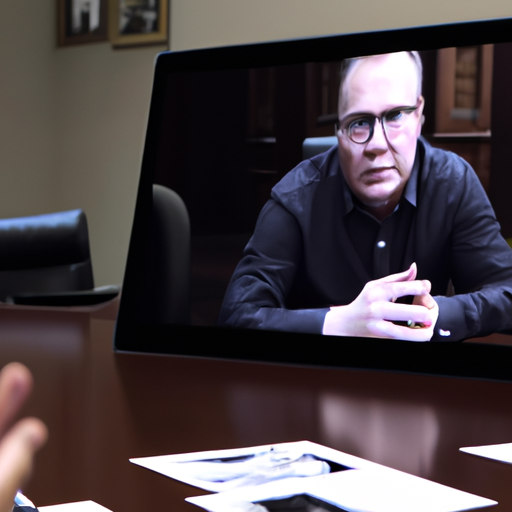
The Importance of Guest Feedback in the Hospitality Industry
Mastering Guest Feedback: A Guide to Staying Ahead
In the fast-paced and competitive world of the hospitality industry, staying ahead is crucial. One of the most effective ways to do this is by mastering guest feedback. Understanding the importance of guest feedback and knowing how to utilize it can make all the difference in providing exceptional service and ensuring guest satisfaction.
Guest feedback is a valuable tool that allows businesses in the hospitality industry to gauge their performance and make necessary improvements. It provides insights into what guests liked and disliked about their experience, allowing businesses to tailor their services to meet the needs and expectations of their customers.
Listening to guest feedback is not only important for improving customer satisfaction but also for building a strong reputation. Positive reviews and recommendations from satisfied guests can significantly impact a business’s success. On the other hand, negative feedback can be detrimental if not addressed promptly and effectively.
To truly master guest feedback, businesses must actively seek it out. This can be done through various channels, such as online review platforms, surveys, and direct communication with guests. By actively encouraging guests to provide feedback, businesses can gather a wealth of information that can be used to enhance their offerings.
Once feedback is received, it is essential to analyze and categorize it. This allows businesses to identify patterns and trends, enabling them to address common issues and make informed decisions. Categorizing feedback also helps prioritize areas that require immediate attention, ensuring that the most critical concerns are addressed promptly.
Responding to guest feedback is equally important. Whether the feedback is positive or negative, acknowledging and responding to it shows guests that their opinions are valued. Positive feedback should be acknowledged with gratitude, while negative feedback should be addressed with empathy and a genuine desire to resolve any issues.
In addition to responding to individual feedback, businesses should also take a proactive approach by implementing changes based on the feedback received. This demonstrates a commitment to continuous improvement and shows guests that their feedback is taken seriously.
To stay ahead, businesses must also keep an eye on industry trends and best practices. By staying informed about the latest developments in the hospitality industry, businesses can identify areas where they can excel and differentiate themselves from the competition. This knowledge can also help businesses anticipate and address potential issues before they arise.
Finally, businesses should never underestimate the power of word-of-mouth marketing. Satisfied guests who have had their feedback acknowledged and addressed are more likely to become loyal customers and advocates for the business. By consistently providing exceptional service and actively seeking and utilizing guest feedback, businesses can create a positive reputation that attracts new guests and keeps existing ones coming back.
In conclusion, mastering guest feedback is essential for staying ahead in the hospitality industry. By understanding the importance of guest feedback, actively seeking it out, analyzing and categorizing it, responding to it, implementing changes based on it, staying informed about industry trends, and leveraging the power of word-of-mouth marketing, businesses can provide exceptional service and ensure guest satisfaction. In doing so, they can create a competitive edge that sets them apart from the rest.
Strategies for Collecting and Analyzing Guest Feedback

Mastering Guest Feedback: A Guide to Staying Ahead
In the hospitality industry, guest feedback is a valuable tool for improving customer satisfaction and staying ahead of the competition. By collecting and analyzing guest feedback effectively, hotels and restaurants can gain valuable insights into their guests’ experiences and make informed decisions to enhance their services. In this section, we will explore some strategies for collecting and analyzing guest feedback that will help you stay ahead in the industry.
One of the most effective ways to collect guest feedback is through surveys. Surveys can be conducted in various formats, such as online questionnaires or paper-based forms. It is important to keep the survey short and concise, focusing on key aspects of the guest experience. By asking specific questions about their stay or dining experience, you can gather valuable information about what worked well and what needs improvement.
To encourage guests to participate in surveys, it is essential to offer incentives. This could be in the form of discounts on future stays or complimentary services. By providing an incentive, guests are more likely to take the time to provide detailed feedback, which will ultimately benefit your business.
Another effective strategy for collecting guest feedback is through comment cards. Placing comment cards in guest rooms or at the reception desk allows guests to provide feedback at their convenience. It is important to make the process as simple as possible, with clear instructions on how to fill out the card and where to drop it off. By making it easy for guests to provide feedback, you increase the chances of receiving valuable insights.
In addition to surveys and comment cards, social media platforms can also be a powerful tool for collecting guest feedback. Many guests turn to social media to share their experiences, whether positive or negative. By monitoring social media channels and engaging with guests, you can address any concerns or issues in real-time. This not only shows your commitment to customer satisfaction but also allows you to gather feedback that may not have been shared through traditional channels.
Once you have collected guest feedback, the next step is to analyze it effectively. One way to do this is by categorizing feedback into different areas, such as service, cleanliness, or amenities. This allows you to identify patterns and trends, making it easier to prioritize areas for improvement. Additionally, using sentiment analysis tools can help you gauge the overall sentiment of guest feedback, whether it is positive, negative, or neutral.
It is also important to track guest feedback over time. By comparing feedback from different periods, you can identify any improvements or declines in guest satisfaction. This allows you to measure the effectiveness of any changes or initiatives you have implemented.
In conclusion, collecting and analyzing guest feedback is crucial for staying ahead in the hospitality industry. By utilizing strategies such as surveys, comment cards, and social media monitoring, you can gather valuable insights into your guests’ experiences. Analyzing this feedback effectively allows you to identify areas for improvement and make informed decisions to enhance your services. By mastering guest feedback, you can ensure that your business stays ahead of the competition and continues to provide exceptional experiences for your guests.
Implementing Effective Changes Based on Guest Feedback
Implementing Effective Changes Based on Guest Feedback
In the previous section, we discussed the importance of collecting guest feedback and how it can help improve your business. Now, let’s delve into the next crucial step: implementing effective changes based on that feedback. This is where the real magic happens – turning valuable insights into tangible improvements that will keep your guests coming back for more.
First and foremost, it’s essential to carefully analyze the feedback you’ve received. Take the time to read through each comment, review, and suggestion, and identify common themes or recurring issues. This will help you prioritize which areas need immediate attention and which can be addressed later. By understanding the most pressing concerns, you can focus your efforts on making the most impactful changes.
Once you have a clear understanding of the feedback, it’s time to brainstorm potential solutions. Gather your team and encourage them to contribute their ideas. Remember, the more perspectives you have, the more comprehensive and innovative your solutions will be. This collaborative approach will not only lead to better outcomes but also foster a sense of ownership and engagement among your staff.
When brainstorming, it’s important to think outside the box. Don’t limit yourself to conventional solutions – be open to trying new approaches. Sometimes, the most effective changes come from unexpected sources. Consider involving your guests in the process as well. You can create surveys or hold focus groups to gather additional insights and ideas. By involving your guests, you not only make them feel valued but also gain a deeper understanding of their needs and preferences.
Once you have a list of potential solutions, it’s time to prioritize and create an action plan. Start by identifying the changes that will have the most significant impact on your guests’ experience. These should be your top priorities. Break down each change into smaller, manageable tasks and assign responsibilities to specific team members. This will ensure accountability and make the implementation process smoother.
Remember, effective communication is key throughout this process. Keep your team informed about the changes you plan to implement and why. Explain how these changes align with the feedback received and how they will benefit both the guests and the business. By involving your team in the decision-making process and providing clear explanations, you will gain their support and enthusiasm.
As you begin implementing the changes, it’s crucial to monitor their effectiveness. Keep track of key metrics such as customer satisfaction scores, repeat business, and online reviews. This will help you gauge whether the changes are having the desired impact. Additionally, continue to collect feedback from your guests to ensure that you are on the right track. Remember, guest preferences and expectations can evolve over time, so it’s important to stay proactive and adaptable.
Finally, celebrate your successes. When you see positive results from the changes you’ve implemented, acknowledge and appreciate the efforts of your team. Recognize their hard work and dedication in making these improvements possible. This will not only boost morale but also reinforce the importance of guest feedback and the value it brings to your business.
In conclusion, implementing effective changes based on guest feedback is a crucial step in staying ahead in the hospitality industry. By carefully analyzing feedback, brainstorming innovative solutions, prioritizing changes, and involving your team and guests, you can create a guest experience that exceeds expectations. Remember to monitor the effectiveness of your changes, adapt as needed, and celebrate your successes along the way. With this approach, you’ll be well on your way to mastering guest feedback and ensuring the long-term success of your business.


